The past years have witnessed a remarkable increase of parliamentary engagement in the field of foreign policy and international politics.
Is Parliamentary Diplomacy a Way Out of Isolation? Artsakh Proves It Is
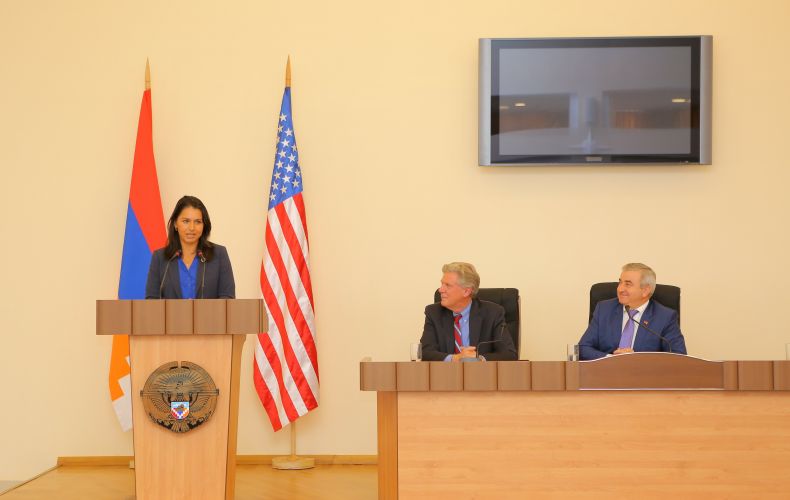
The past years have witnessed a remarkable increase of parliamentary engagement in the field of foreign policy and international politics.


Armenia's position on the country's withdrawal from the Collective Security Treaty Organization (CSTO) has not yet been clarified, Russian presidential press secretary Dmitry Peskov said, news.am informs, citing RIA Novosti.

The European Union Mission in Armenia (EUMA) marked its first anniversary on Tuesday 20 February.

At his meeting with representatives of the Armenian communities of Munich and neighboring regions in Germany on Sunday, Armenian Prime Minister Nikol Pashinyan presented details of his talk with the president of Azerbaijan, Ilham Aliyev, in Munich, in which the Chancellor of Germany also participated,news.am informs.
Prime Minister Nikol Pashinyan will participate in the 2024 Munich Security Conference, his office said Friday.
Armenia reaffirms its commitment to resume negotiations with Azerbaijan through the mediation of the European Union (EU). Artur Hovhannisyan, secretary of the ruling majority Civil Contract Faction, stated this during Friday’s press briefings at the National Assembly of Armenia.
U.S. Ambassador to Armenia Kristina Kvien has expressed condolence over the deadly explosion in Yerevan.
The sixth meeting of the Commission on Delimitation and Border Security of the State Border between the Republic of Armenia and the Republic of Azerbaijan and the State Commission on the Delimitation of the State Border between the Republic of Azerbaijan and the Republic of Armenia will be held on January 31 on the border between the Republic of Armenia and the Republic of Azerbaijan.
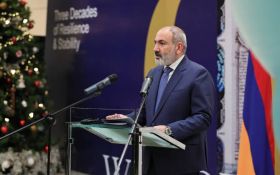
Prime Minister Nikol Pashinyan has visited the Central Bank to participate in a New Year and Christmas reception.

Russian Energy Minister Nikolai Shulginov announced that the Kremlin is negotiating with Tehran and Baku on the possibility of exporting 300 MW of electricity through Azerbaijan to Armenia and then to Iran, using the existing infrastructure, News.am informs, citing Prime news agency.

Russian Prime Minister Mikhail Mishustin will visit Armenia on August 24-25 to participate in the Eurasian Intergovernmental Council session, the Russian government announced Wednesday.
Since Artsakh has been under blockade by Azerbaijan ever since December 12, 2022, and humanitarian cargo transportation to Artsakh has been completely stopped ever since June 15 of this year, a cash problem has arisen in Artsakh, Artsakh Republic Ministry of Finance and Economy informed.
Due to the complete blockade, the acquisition of hygiene items has also become a serious problem in Artsakh.
In the post-war period, the state made a lot of investments in Artsakh’s irrigation systems, which enabled to triple the irrigated areas, the goal of which was to solve the food security issue, Artsakh Republic Minister of Agriculture Georgi Hayriyan told Artsakhpress.

Today, the European Commission is allocating an additional €5.5 million in humanitarian aid to support the Armenians displaced from the Nagorno-Karabakh region, the EU Delegation to Armenia said in a press release.
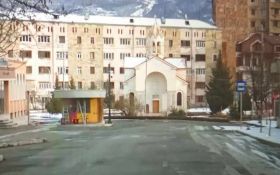
The Azerbaijani state policy of appropriation and destruction of Armenian historical and cultural heritage continues to grow exponentially in occupied Artsakh, Cultural Ombudsman of Hayk Hovik Avanesov warns.
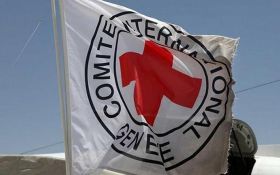
In 2023, 660 oral, video, written messages, and phone calls were exchanged between the Armenians detained in Azerbaijan in relation to the conflict escalations and their relatives. This is noted in a statement on X, former Twitter, by the International Committee of the Red Cross (ICRC) Armenia office.
At Thursday's Cabinet meeting, the Armenian government made a change in one of its decisions whereby, according to Khachatur Khachikyan, the First Deputy Chairman of the Committee on Nuclear Safety Regulation of Armenia, it is planned to make the specialists of the nuclear safety department, the radiation safety department, and the technical division of the Committee from the civil service to specialists performing civil work, news.am informs.
The Armenian Apostolic Church marks the Feast of St. Vartan the Warrior and Companions on Thursday 8 February, Qahana.am reports.
A total of 1902 babies, including 962 boys and 840 girls, were born in Yerevan last week, Davit Karapetyan, the acting head of the Yerevan Municipality Health Department, revealed on Monday, Panorama.am reports.

A delegation led by the Minister of Defense of Armenia, Suren Papikyan, on Tuesday left for Kazakhstan on an official visit at the invitation of the Kazakh defense minister.
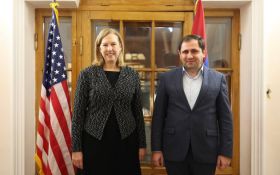
Armenian Minister of Defense Suren Papikyan has met with U.S. Ambassador to Armenia Kristina Kvien to discuss defense cooperation, the Ministry of Defense said in a statement.

An Armenian contract serviceman was found dead of a gunshot wound at a combat outpost early on Tuesday morning.
55 Armenians are currently held captive in Azerbaijan but Baku has so far acknowledged only 23 of them, a senior law enforcement official has said.
223 people, including 5 children, were killed in Nagorno-Karabakh in the 19-20 September 2023 Azerbaijani attack, Argishti Kyaramyan, Chairman of the Investigative Committee of Armenia, announced this in an interview with the Public Television of Armenia.
31 servicemen of the Republic of Armenia who were taken captive in 2020-2023, and 1 serviceman who was taken captive in Nagorno-Karabakh in September, have been released from Azerbaijani captivity and are now back in Armenia, Prime Minister Nikol Pashinyan announced Wednesday afternoon.
Armenia and Azerbaijan are expected to exchange prisoners on Wednesday 13 December, the news agency Turan reported, citing its sources.
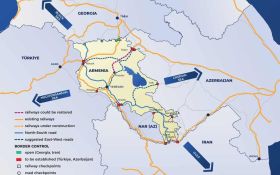
On October 26, within the framework of the Silk Road Forum in Tbilisi, Nikol Pashinyan presented the project “Crossroads of Peace”. According to him, unblocking communications in the region will not only lead to the establishment of peace in the South Caucasus, but will also turn Armenia into a crossroads of infrastructure projects.
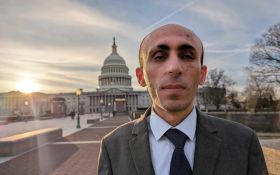
The National Journal, one of the most cited newspapers in the US Congress, published an extensive interview with former Artsakh official Artak Beglaryan, within the framework of his and Artsakh Human Rights Acting Defender Gegham Stepanyan's recent visit to the US.
month
week
day